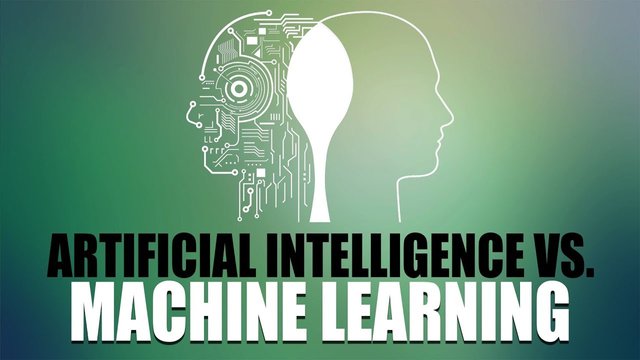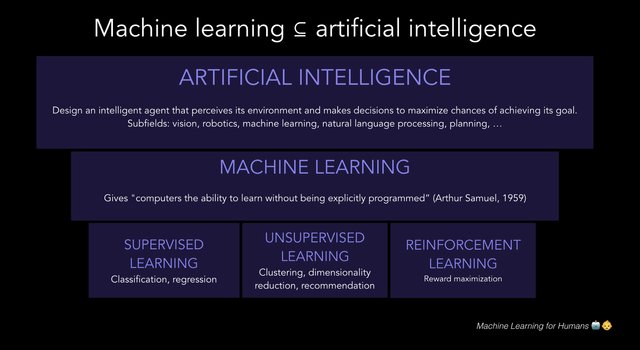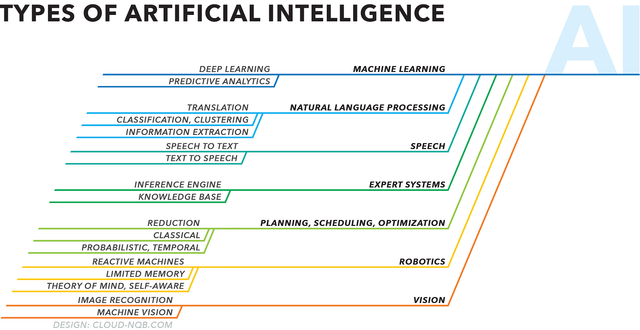Machine Learning Vs. Artificial Intelligence: How Are They Different?
Artificial intelligence and machines have become a part of everyday life, but that doesn't mean we understand them well. Do you know the difference between machine learning (ML) and artificial intelligence (AI)?
If you're hoping to use one or the other in your business, it's important to know which one to focus on. ML and AI are related, but they aren't the same, and they aren't necessarily suited to the same tasks. You can take your business to the next level by knowing when to choose ML or AI.
This guide will walk you through everything you need to know about AI and ML, from what they are to why they're different. Keep reading to learn how this modern tech can help you and your business.
Machine Learning Vs. Artificial Intelligence: The Basics
Here are two simple, essential definitions of these different concepts.
AI means that machines can perform tasks in ways that are "intelligent." These machines aren't just programmed to do a single, repetitive motion -- they can do more by adapting to different situations.
Machine learning is technically a branch of AI, but it's more specific than the overall concept. Machine learning is based on the idea that we can build machines to process data and learn on their own, without our constant supervision.
Let's take a closer look at what these two concepts really mean and how they developed.
In The Beginning
Needless to say, AI and machine learning are relatively new. The concepts stretch back to certain imaginative individuals from decades, centuries and even millennia ago. But it's only recently that these dreams became realities.
The concept of AI really solidified with the earliest computers. These first computers weren't making any decisions at their own, of course. However, they were "logical machines" that were able to remember information and make calculations. The people creating these machines knew that they were working to make a brain-like machine.
However, technology has gotten much more advanced since then, so our ability to make brain-like machines has advanced, too. In the past few decades, we've also developed a better understanding of how our own brains actually work.
The more we understand these things, the more the approach to AI changes. Our computers can now make incredibly complex calculations, but developments don't really focus on those now. Instead, people are seeking to create machines that can make decisions in similar ways to humans and use those decisions to complete tasks.
Types of AI
There are two major subcategories of AI. The first is applied AI. This is the most common form of AI. It includes everything from intelligent stock-trading systems to automated driving.
Generalized AI is less common because it's more difficult to create. Ideally, a generalized AI would be capable of handling all kinds of different tasks, just like humans are. Although these AIs aren't common, many researchers have been making advancements in the generalized AI field.
Most importantly, this subsection is what led to the development of machine learning.
Machine Learning's Growth
Machine learning has developed thanks to certain breakthroughs in the AI field.
The first breakthrough involved realizing that it was more efficient to teach computers how to learn than to teach them how to perform every possible task and give them the information needed to complete those tasks.
The second major breakthrough was the invention of the internet. This led to a massive potential for information storage that had never been seen before. Machines could now look at amounts of data that they'd never been able to access before due to storage limitations. In fact, the amount of data being created is too much for humans to process.
These two breakthroughs made it clear that instead of teaching machines to do things, a better goal was to design them to "think" for themselves and then allow them access to the mass of data available online so they could learn.
The Role of Neural Networks
The advent of neural networks became essential for this process of teaching computers to think like humans. Neural networks allow computers to more closely mimic human brains while still being faster, more accurate and less biased.
Neural networks are a type of computer system that's made to classify information like our own brains does. For example, a neural network can look at pictures, recognize the elements in them and classify them according to what they show.
These networks use the data they have access to make determinations. The data doesn't allow them to be perfectly accurate, but they can make decisions based on what's most likely to be right.
Most importantly, these systems involve a feedback loop for "learning." The machine can find out whether or not its decisions were right, and then change its approach to do better next time.
What Can Machine Learning Do?
The possibilities of these systems seem almost endless.
Already, ML allows computers to look at text and determine whether the content is positive or negative. They can figure out if a song is more likely to make people sad than happy. Some of these machines can even make their own compositions with themes that are based on a piece they've listened to.
One major application of machine learning is in communication with people. The field of AI called natural language processing heavily uses machine learning. This will someday allow companies to offer automated customer service that's just as useful as human customer support.
Machine Learning Vs. Artificial Intelligence: Which Is Right For You?
Both AI and ML can have valuable business applications. Determining which one is best for your company depends on what your needs are.
These systems have many great applications to offer, but ML has gotten much more publicity lately, so many companies have focused on that source of solutions. However, AI can also be useful for many simpler applications that don't require ongoing learning.




Hi! I am a robot. I just upvoted you! I found similar content that readers might be interested in:
https://www.forbes.com/sites/forbestechcouncil/2018/07/11/machine-learning-vs-artificial-intelligence-how-are-they-different/
Thanks!
thx for the clear explanation
Machines are very advanced and complicated these days. If you are interested in machine learning and want to know more about it then you can check out this website www.computer.org/publications/tech-news/build-your-career/machine-learning-how-then-nature-of-a-peoples-choice-will-make-ai-more-powerful-than-ever . It's a good article that related to this topic. Good luck.
Some time ago I learned about an AI-based platform that can already be easily used to optimize various processes. I also advise you to learn more about Edge AI platform which is easy to customize according to your goals and needs. For example, a great option to use is a loss prevention in retail stores through this platform.
If you want to learn more about machine learning and artificial intelligence, my advice is to check out MindPlix https://www.mindplix.com. I have used their chips myself and was not disappointed. They have a lot of materials and tools to understand the topic. I personally found their materials very useful and clear. If you have any questions, they are supportive and helpful, I like it, I think you will like it too